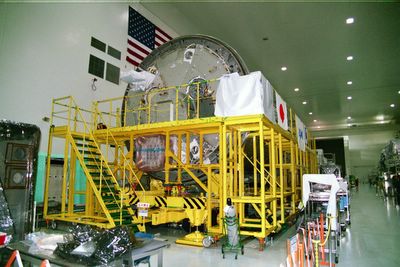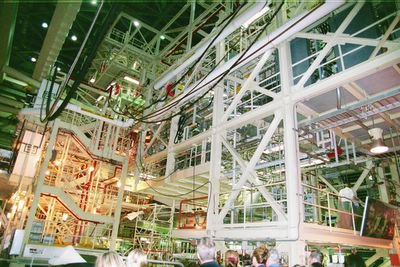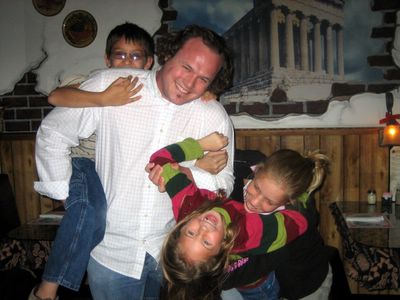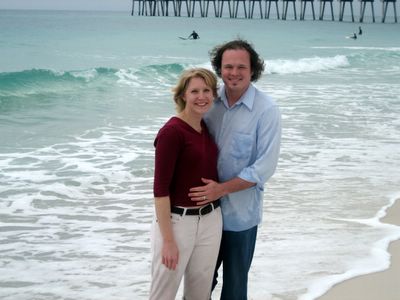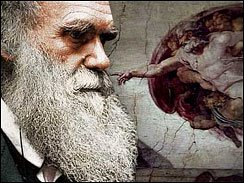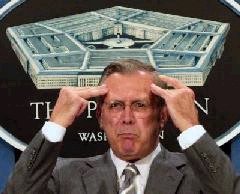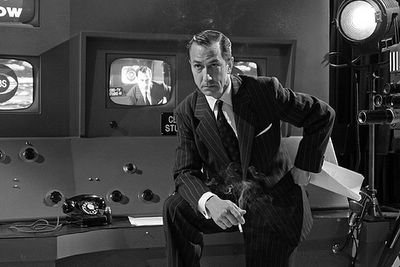 “We must not confuse dissent with disloyalty. When the loyal opposition dies, I think the soul of America dies with it.” --Edward R. Murrow
“We must not confuse dissent with disloyalty. When the loyal opposition dies, I think the soul of America dies with it.” --Edward R. MurrowThere are certain pieces of art that transcend the medium on which they were created to take their place in the diminutive pantheon of ethical signposts, those creative signals that point humankind in the way it should, or should not, go. Witness
Aesop’s Fables, the medieval morality plays,
Candide, the social commentaries of Dickens,
Uncle Tom’s Cabin, the works of Dostoevsky, etc. Some art speaks to particular nationalities, others to the universal human condition—some to both.
I did not think America would produce a more timely and necessary film this year than the phenomenally crucial,
Crash. But it has.
George Clooney’s sophomore film,
Good Night, and Good Luck is a brilliant tour de force, both of filmmaking and philosophy. It is a daring and to some, a dangerous film. It offers something to everyone who craves more than escapism from the cinema. It offers truth. It is a snapshot of a previous era’s fight for America’s soul writ large on the canvas of contemporary necessity.
We are guests as immortal newscaster Edward R. Morrow galvanizes a nation against the tyrannical excesses of government under the leadership of Senator Joseph McCarthy, and know that, while the film works brilliantly on its surface level, it intentionally fails spectacularly at hiding an undulating sea of stinging metaphor and unavoidably allegory just beneath its classy, jazzy veneer. And, if we are keen enough to catch it, surely we are the better for it.
Taking on McCarthy is not something Murrow and his young Turks
wanted to do—it is something they felt they
had to do. They simply could stand by while McCarthy destroyed the country’s freedoms in the name of defending them. A cancer was growing in the body politic and someone had to see that it was removed, something Murrow did with eloquent precision.
Clooney and the film’s screenwriters do not attempt to put words in Murrow’s mouth—they let his own broadcasts guide the film:
“We must not confuse dissent with disloyalty. We must remember always that accusation is not proof and that conviction depends upon evidence and due process of law.
We will not walk in fear, one of another. We will not be driven by fear into an age of unreason, if we dig deep in our history and our doctrine, and remember that we are not descended from fearful men -- not from men who feared to write, to speak, to associate and to defend causes that were, for the moment, unpopular.
This is no time for men who oppose Senator McCarthy's methods to keep silent, or for those who approve. We can deny our heritage and our history, but we cannot escape responsibility for the result. There is no way for a citizen of a republic to abdicate his responsibilities. As a nation we have come into our full inheritance at a tender age. We proclaim ourselves, as indeed we are, the defenders of freedom, wherever it continues to exist in the world, but we cannot defend freedom abroad by deserting it at home.
If we confuse dissent with disloyalty— if we deny the right of the individual to be wrong, unpopular, eccentric or unorthodox— if we deny the essence of racial equality, then hundreds of millions in Asia and Africa who are shopping about for a new allegiance will conclude that we are concerned to defend a myth and our present privileged status. Every act that denies or limits the freedom of the individual in this country costs us the ... confidence of men and women who aspire to that freedom and independence of which we speak and for which our ancestors fought.”
Murrow is played by veteran character actor David Strathairn, who delivers a powerhouse performance of lucidity and elegance under refined restraint. His mannerisms and voice so capture the late journalist that it is as Murrow reborn, the role of a lifetime. Clooney realized early on, that casting an actor to play McCarthy would weaken the film and its believability. He chose the brilliant road of including the senator only in archival footage, in essence allowing McCarthy to play himself. Ironically, the tactic was also used by Murrow. Shirking much editorializing, CBS instead primarily used McCarthy’s own words against him, destroying him with the truth like he so blusterously destroyed others with lies.
Good Night, and Good Luck is shot in elegant black and white, evoking, more than once, allusions to the great Citizen Kane and, of course, the footage in which the original showdown was broadcast. Nearly every character smokes, making for a swirling, poisonous, chocking atmosphere. Shots are low and close and intimate. The movie is entirely, hermetically, claustrophobically, about politics and the news business.
In addition to chronicling Murrow vs. McCarthy, Good Night, and Good Luck also hammers at the “dumbing down” of the mainstream news media. Hard, responsible news, Murrow felt, was in jeopardy of being rendered impotent by the need to entertain.
“Our history will be what we make it. And if there are any historians about fifty or a hundred years from now, and there should be preserved the kinescopes for one week of all three networks, they will there find recorded in black and white, or color, evidence of decadence, escapism and insulation from the realities of the world in which we live. Here you will find only fleeting and spasmodic reference to the fact that this nation is in mortal danger. Television in the main insulates us from the realities of the world in which we live.
For surely we shall pay for using this most powerful instrument of communication to insulate the citizenry from the hard and demanding realities which must be faced if we are to survive. I mean the word survive literally.
But this nation is now in competition with malignant forces of evil who are using every instrument at their command to empty the minds of their subjects and fill those minds with slogans, determination and faith in the future. If we go on as we are, we are protecting the mind of the American public from any real contact with the menacing world that squeezes in upon us. We are engaged in a great experiment to discover whether a free public opinion can devise and direct methods of managing the affairs of the nation.
Just once in a while let us exalt the importance of ideas and information. Let us dream to the extent of saying that on a given Sunday night the time normally occupied by Ed Sullivan is given over to a clinical survey of the state of American education, and a week or two later the time normally used by Steve Allen is devoted to a thoroughgoing study of American policy in the Middle East. Would the corporate image of their respective sponsors be damaged? Would the stockholders rise up in their wrath and complain? Would anything happen other than that a few million people would have received a little illumination on subjects that may well determine the future of this country?
We are currently wealthy, fat, comfortable and complacent. We have currently a built-in allergy to unpleasant or disturbing information. Our mass media reflect this. But unless we get up off our fat surpluses and recognize that television in the main is being used to distract, delude, amuse and insulate us, then television and those who finance it, those who look at it and those who work at it, may see a totally different picture too late.
I began by saying that our history will be what we make it. If we go on as we are, then history will take its revenge, and retribution will not limp in catching up with us.
[There are] those who say people wouldn't look; they wouldn't be interested; they're too complacent, indifferent and insulated. If they are right, and this instrument is good for nothing but to entertain, amuse and insulate, then the tube is flickering now and we will soon see that the whole struggle is lost. This instrument can teach, it can illuminate; yes, and it can even inspire. But it can do so only to the extent that humans are determined to use it to those ends. Otherwise it is merely wires and lights in a box.”
Though Murrow was speaking to a crowd in the 1950s, he might as well have been speaking about today. Compelling sound bytes that grab the attention but are immediately forgotten seem to be the rule of modern TV news. Murrow didn’t just stand up for what he believed in, he was a visionary with a keen insight into how the future would unfold.
It’s astonishing that encyclopedic events from over 50 years ago could have such a potent resonance today. Are the lessons learned then—truths purchased with blood, sweat, and tears—already forgotten? Is today’s climate of escalating paranoia all that different from what this country endured during the birth pains of the Cold War? While modernity has not yet generated a demagogue of McCarthy’s stature, the eerie sense of déjà vu is, nonetheless, inescapable. It is not that difficult to see the frightening parallels if the word “Communism” is replaced with the word “Terrorism.” While no one is suggesting that these comments, or this film, should be seen as an argument that terrorism is not a serious threat, they are, instead, warning bells against those who would exploit it as a means of political and financial gain. What Good Night, and Good Luck does so well, is remind us that the battles that Murrow and his men fought are never permanently won, but must be re-fought by every new generation.
If Good Night, and Good Luck is a cautionary tale that looks back at events of the past with an unblinking eye, let us hope it is not also peering into the future. By releasing Good Night, and Good Luck now, Clooney is using our own history to illuminate the precipice upon which this country now stands.
Good Night, and Good Luck is the sort of film where, at the end, you just may break out in enthusiastic applause. I know I did.



